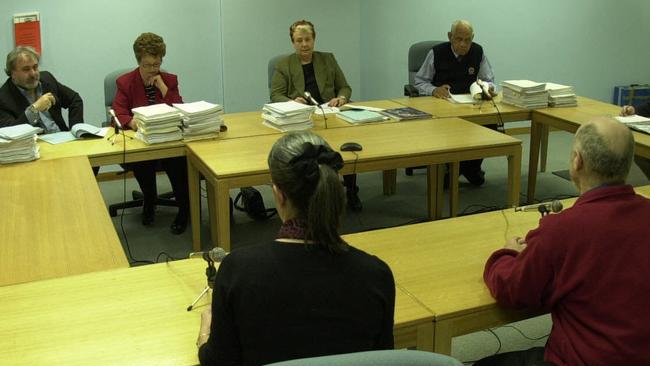Parole Board to get new powers to penalise offenders who breach condition
Offenders who breach their conditions could face a raft of new consequences from an expanded SA Parole Board.
SA News
Don't miss out on the headlines from SA News. Followed categories will be added to My News.
South Australia’s Parole Board is being expanded and will have new powers to punish offenders who breach their release conditions.
Under changes to the Correctional Services Act an extra two members will be added to the board to relieve the pressure the existing nine members have been under because of increased workloads and responsibilities.
And the board will be given the power to penalise those who breach parole – ranging from returning them to prison to ordering community service for minor breaches – rather than their breaches clogging the court system.
Chairwoman Frances Nelson QC has welcomed both moves, saying the extra members and punishment options would give the board more flexibility.
“The workload of the board has increased significantly,’’ she said.

“Until now we have not been given any additional resources to deal with the additional workload. With two extra members and two deputies it gives us flexibility.’’
Besides dealing with prisoners seeking parole the board also supervises people found mentally incompetent and people released on licence having been detained because they can’t contain their sexual impulses. Since high risk offenders’ legislation was introduced in 2015, the board also manages around 120 individuals placed on extended supervision orders.
The move will be the first major change in the Parole Board’s powers for decades and will result in offenders who breach their parole being dealt with by the board, rather than being put back into the court system.
Previously, if an offender breached their parole it was either cancelled or they were given another chance by the board following a hearing, with no other options available.
“Now we can impose a finite period of detention,’’ Ms Nelson said.
“It gives us a bit of flexibility because cancelling parole involves that person having to go back to court, get the court to set a further non-parole period then make a further application for release we would then have to consider.
“That is in circumstances where perhaps that is unnecessary but giving them another chance is too lenient.’’
Under the new Act other options available besides a finite period of detention include varying their release conditions, ordering the offender to reside at a parole hostel or complete specified programs or community service.
Under another change the pay for board members will now be set by the Remuneration Tribunal, rather than the government.
Ms Nelson said she did believe a full-time board was needed because it would be difficult to recruit members with the right expertise on a full-time basis. She said she believed the board members need to be remunerated appropriately.
“Having seen the remuneration paid to those on other boards, we are grossly undervalued,’’ she said.
“If you are asking people to give up their professional time to do board work then you should pay them appropriately.’’

At present the board chair is paid around $80,000 a year, deputies $50,000 and members $37,000.
Ms Nelson said a backlog of prisoner applications waiting to be heard, caused by COVID-19 restrictions, had only just been cleared up.
“The Board’s policy is that anyone who is a high risk offender or has committed a serious offence must be interviewed face-to-face because that way you get the best impression of the person,’’ she said.
“We were not in a position to interview any of those people until later in the year, but we did conduct video link interviews with other applicants for parole.
“The difficulty there was instead of 14 interviews on Tuesday and Thursday, we were restricted to around eight because of the prison protocols. That presented us with a significant backlog.’’
The appointment of two new deputy presiding members last November, namely lawyers Bill Boucaut QC and Nick Floreani, and the scheduling of additional weekly meetings assisted in clearing the backlog.
Ms Nelson said the extra meetings required scheduling deputy members regularly – at a financial cost – and she feared they would not be available after April 30 because Treasury had put a monetary limit on the number of meetings they could undertake.
“That was a real concern to us, but with the assistance of Corrections I think we have been able to overcome that difficulty temporarily,’’ she said.




